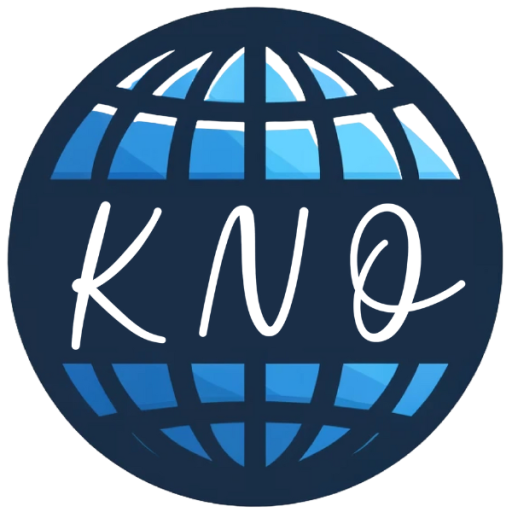Are You Ready to Become an Entrepreneur?

Choose Your Path to Be an Entrepreneur
You might be ready to become an entrepreneur if you are passionate about running a business or making your own income without relying on a job. Entrepreneurship involves harnessing a passion and using it to generate products and services that provide value and help people while providing you with a livable income.
Entrepreneurship is glamorous and can be profitable. Many people dream of leaving their jobs in search of flexibility and increased income, and many are successful. However, not everyone can harness the self-discipline and commitment necessary to find success.
If you’ve dreamed of making the leap from employee to entrepreneur and wonder if you have what it takes, read on and decide for yourself. These five signs won’t make you successful, but they’ll give you a good idea what to expect as an entrepreneur.
You Are Comfortable Working on Your Own
Most businesses, especially when you first start out, are lonely and require you to do most of the work. Not only that, but they take a lot of work, which means spending time with friends and loved ones may be more difficult. Most people will not be as passionate as you are, either, which is okay.
You Desire Freedom and Flexibility
Being an entrepreneur enables you to create your own schedule. However, this is only possible if you create the income streams conducive to that lifestyle. For example, if you want to be a career coach, you will likely need to be available after regular working hours, as many of your ideal clients will normally be working nine to five business hours.
Confidence and Creativeness Come Naturally to You When You’re Ready to Become an Entrepreneur
Being a business owner requires a passion for your ideas, skills, and value to others. It also requires confidence in knowing you have the skills and knowledge to achieve your goals and provide value to your target audience.
You Dislike Having a Boss Give You Orders
No matter your role, being an employee requires following orders. It requires working when and where your boss tells you to. For many, this can mean working during the weekend or working overtime during the week and following any demands the boss asks in order to not be fired from the job. Following orders doesn’t always have to be negative as this can be structured to many people’s lives. However, if you are the type to push away or come up with better ideas often, then it’s probably time for you to take the entrepreneurial leap and work for yourself instead.
Risk Is Enjoyable to You
Most business ideas, even the best ones, are risky. Becoming an entrepreneur means you are willing to step into a world that relies only on yourself and no other person. If taking risks gives you energy and makes you want to do the work, you are a natural-born business owner.
These are the common signs that you are meant to be an entrepreneur and stop being an employee. If you recognize these signs, it is crucial to acknowledge that you won’t find the life you are looking for without finally taking the leap to entrepreneurship. These signs prove you thrive on the independence and creativity entrepreneurship can bring.
The Pros and Cons of Working for Yourself
Self-employment offers many benefits to those who want to take control of their careers and are ready to become an entrepreneur. However, before you consider transitioning from employee to self-employment, it is important to evaluate the pros and cons carefully.
Entrepreneurs control everything about their business, which is a major plus. As an employee, you may feel others control your career. This includes your boss, company policies, and even market conditions. However, when you become self-employed, you get to call the shots and make all the critical decisions about your business. This gives you more freedom and greater job satisfaction than many traditional employees can experience.
The downside to having so much control is that there’s no safety net. As an employee, you have the security of knowing that your salary will come in every month, no matter what. However, your income is not guaranteed when you run your own business. If you don’t find enough customers to keep your business running smoothly, you may struggle to pay the bills. Thankfully this is not always true and can be mostly solved by creating assets that provide passive income.
Creative ventures await those entrepreneurs ready to pursue them. This is a significant benefit of being self-employed as it allows you to choose the work that most interests you instead of slogging through projects or assignments that don’t appeal to you. So, for example, if you love writing but hate working with spreadsheets, you can focus your business on writing instead of having to do both.
Entrepreneurship Can Be Risky
With freedom and full control comes risk. When you run your own business, there is always a risk that it will not be successful. You may have to take out loans or invest significant amounts of money to get started. In addition, you are responsible for all the financial decisions related to your business. Should you make investments in equipment or marketing? How much should you spend on advertising? These are questions that employees rarely need to consider when working for someone else.
With risk comes the possibility of increased income. In general, self-employed individuals can make much more money than traditional employees. This is because you are in charge of setting your own rates, the number and type of products you’ll create, and deciding what clients to accept instead of receiving a set salary or hourly rate incompatible with the value you bring to the company.
Often entrepreneurs spend more time working on their business. This is especially true during the start-up phase, compared to what they did as employees at their 9-5 jobs. Although they feel they have more freedom since they work for themselves, this is often untrue. In fact, most self-employed people report working longer hours than their peers in traditional jobs.
Entrepreneurship Offers Better Work-Life Balance
On the other hand, many self-employed individuals enjoy a better work-life balance than their peers who have traditional jobs. This is because you can set your own hours and take time off whenever you need it without worrying about asking your boss for permission.
Along with the benefits and opportunities that come with running your own business, you also have all of the responsibility for decision-making and management. This includes paying taxes, managing employees or contractors, filing paperwork, marketing your business, and much more. While this may seem overwhelming to some people, it can become second nature with time.
Ultimately, deciding if you are ready to become an entrepreneur depends on your individual goals and preferences. If you are comfortable taking risks and are motivated by flexibility and creativity, then becoming self-employed could lead to greater professional and personal success. However, if you value the security of a steady paycheck and prefer having someone else make critical business decisions, working for someone else may be a better choice.
Overall, the decision to become self-employed should be made with great thought so that you can feel confident that it is the right choice for your future success.
How Do You Know When You’re Ready to Become an Entrepreneur?
Did you know that about sixteen percent of the American population are said to be entrepreneurs? This figure includes both those who are self-employed and those actively involved in starting a business, which means that sixteen percent of the American population doesn’t rely on jobs to make money.
While the number may seem insignificant, it isn’t, and you can easily be added to this percentage. If you don’t want to be, you don’t need to be tied to an employer. You need to gain the correct information and take the right steps to launch yourself into entrepreneurial success.
Signs You’re Ready to Be An Entrepreneur
You must be financially prepared before leaving your job and taking on the risk that is inherent in being an entrepreneur. Take the time to figure out what funds you need to leave your job. Recognize business funds as well as personal ones. While this may sound obvious, it can be easy to think your business will quickly replace your funds.
This isn’t the best way to prepare yourself for success. Finding ways to supplement your income through part-time side hustles is always good. You should also create an emergency fund before leaving your job. This will cover your bills after you leave and before your business becomes profitable. This is part of the risk that comes with being an entrepreneur.
When you are ready to become an entrepreneur, you must have clear business goals and objectives. A business lacking goals or directions is likely only a dream or concept. If you lack any of these, you will need to conduct more research. Filling out a business plan is the best way to define and clearly understand your goals, objectives, and value as a business.
Entrepreneurial Mindset
An entrepreneurial mindset is about focus, determination, clarity, creativity, and direction. With an entrepreneurial mindset, you can better overcome obstacles or setbacks. This is important as you learn to accept responsibility for yourself and seek to improve. In addition, you know you will always work to create valuable products or services through this mindset.
Confidence and feeling ready are key to success. It will show in your work if you don’t feel ready, and you will likely miss something important. Staying in your current job until you feel it is the right time to leap is a good idea. However, you must be realistic and be sure you are taking steps to get your business going. If not, you will likely stay at your job forever.
Overall, if you have the funds to survive, have a profitable business idea, laid down the work to scale it into a good idea, and feel confident you can do the work no matter what obstacle comes your way, then you know you are ready to become an entrepreneur.
I’m Kim Nelson, a writer, entrepreneur, and small business owner with over 20 years of experience. My career began as a partner in a successful photography business before I transitioned to selling physical products on Amazon FBA, including my own creations. I’m also the founder and owner of two websites. Download my complimentary guide, “Bridging the Gap.” It will help you navigate the financial transition from leaving a steady paycheck to becoming a profitable entrepreneur.
Recommended books to learn more about entrepreneurship:
Kaufman provides a clear overview of the essentials of every major business topic: entrepreneurship, product development, marketing, sales, negotiation, accounting, finance, productivity, communication, psychology, leadership, systems design, analysis, and operations management…all in one comprehensive volume.
Gerber walks you through the steps in the life of a business—from entrepreneurial infancy through adolescent growing pains to the mature entrepreneurial perspective: the guiding light of all businesses that succeed—and shows how to apply the lessons of franchising to any business, whether or not it is a franchise.









